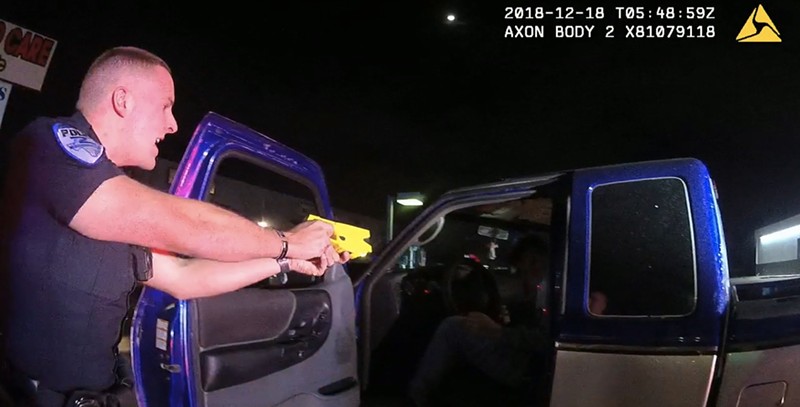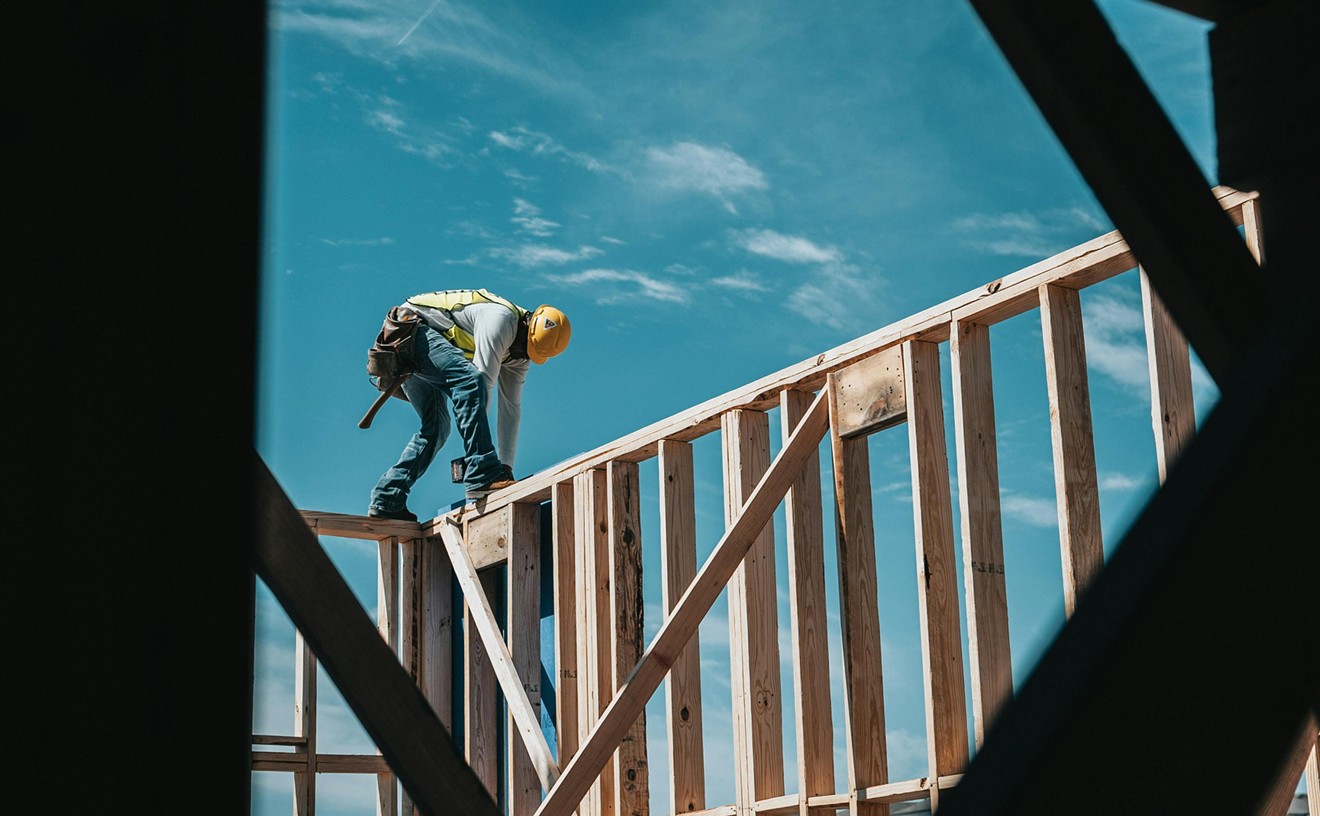In a 2018 report by the Community Oriented Policing Services division of the U.S. Department of Justice, police oversight is described as a valuable tool for both police forces and the citizens they are charged to protect.
"Although not generally acknowledged by the public, police agencies have always had civilian oversight through elected mayors, city councils, prosecutors’ offices, court decisions, and state and federal legislation," the report read. "Since the early 1960s, other forms of oversight have been developed in the hope of ensuring greater police accountability and community trust."
Although most larger cities have police oversight efforts involving civilians, you won’t find them in a lot of North Texas suburbs. Instead, police oversight in the region's suburbs is mostly left to the individual police departments. When we spoke with some departments around North Texas, they all said more or less the same thing: allegations of officer misconduct are handled in-house.
If for no other reason than mere perception, this can be a problem, according to Cameron McElhinney, the executive director for the National Association for Civilian Oversight of Law Enforcement (NACOLE). “Investigations that are done completely in-house, where information only comes and goes from internal elements to the law enforcement agency — there just tends to be less trust in that process,” she said, according to the Florida NPR affiliate WLRN. “If something is done externally to law enforcement, that is seen — whether it's real or perceived — as more legitimate.”
So, civilian police oversight can make people feel more trusting of cops and their operations and act as a check on overstepping by law enforcement. For example, a veteran named Dynell Lane was made to soil himself in 2023 after Dallas police officers wouldn't let him use the restroom in a Deep Ellum pizza parlor. He filed a complaint with internal affairs, but it was found the officers didn't violate any policy. It wasn't until Lane's complaint was brought to the Dallas Community Police Oversight Board that the officers involved were disciplined.
Florence Finkle, NACOLE vice president, told the Observer the concept of civilian oversight is the same no matter where you go. "It stems from the longstanding view that the police can't police themselves," she said. "One of the goals of civilian oversight is to bring transparency to bear on departments that can be pretty insular."
She added, "Most of the time, details involving internal investigations or discipline is not really subject to public purview, and civilian oversight can shine some light on these procedures." Finkle said public trust in police is instrumental to their ability to solve and prevent crime. "The police need the community in order to effectively prevent crime and to solve crimes," she said. "They need the citizenry to cooperate, and if you don't have that public trust, you can't do those things."
Finkle also said the most effective civilian oversight is not focused only on internal administrative investigations. The most effective oversight includes conducting audits, monitoring hiring, training and developing police policies to ensure compliance, and making recommendations to the relevant department to improve policing.
Frisco
The Frisco Police Department says it will investigate any complaint that comes in, whether it be in person, by phone, email or letter, or anonymously. Most of the investigation will start with the officer’s supervisor taking the complaint to make sure it is valid. An invalid complaint may be about someone simply being unhappy they got a ticket.After the initial investigation, the complaint makes its way up the chain of command, from sergeant to lieutenant to the deputy chief to the assistant chief of police. When this review is complete, the complaint will make its way to the professional standards division in the department for final review, or for storage and documentation purposes. Some complaints can be so serious that they go straight to professional standards at the authorization of the police chief.
“Even if the complaint is anonymous, it will be investigated as thoroughly as possible,” Grant Cottingham, a spokesperson for the department, said.
“Even if the complaint is anonymous, it will be investigated as thoroughly as possible.” – Grant Cottingham, Frisco Police
tweet this
People can dispute the findings of an investigation, and they often do, Cottingham said. “That is why it’s so important each level of supervision reviews the complaint as it moves through the chain of command,” he said. “It’s a checks and balances to make sure the investigation was thoroughly and fairly handled and that nothing was missed or overlooked.”
What happens to the officer at the center of a complaint depends on the nature of the allegation against them. If it’s been determined that they violated a minor policy or procedure, that employee’s supervisor will recommend disciplinary action, which will also go up the chain of command. “A sustained allegation of rudeness could result in documentation on the employee’s annual eval, remedial training and/or possibly verbal or written counseling or even a written reprimand,” Cottingham said. “If the allegations are serious enough (like a criminal offense) the employee will not only incur departmental discipline up to and including termination but could also lead to the arrest of the officer.”
Disciplinary action against officers in Frisco is ultimately up to the police chief. If the situation is severe enough, the police chief may bring it up to the city council. Additionally, the professional standards division completes several annual reports documenting all complaints and their outcomes, which are made available for city council council review.
Plano
Jennifer Chapman, a spokesperson for the Plano Police Department, said anyone can submit a complaint against one of the department’s officers, but they must be submitted in writing and signed by the person making the complaint. Complaints of wrongdoing against a Plano police officer are taken up by the department’s professional standards unit, which investigates the allegations. In most ways, the subsequent investigation is handled the same way Frisco does. “They’re going to look at everything.” – Sam Rippamonti, Allen Police
tweet this
In 2015, a Plano officer was disciplined after a confrontation with a group of teenagers he had pulled over. In 2021, the Plano Police Department opened an administrative inquiry after officers arrested a Black 18-year-old who was walking home from work late one night in February during winter weather. The officers said they were initially just trying to conduct a welfare check on RJ Reese, but it escalated after he refused to stop and he was ultimately arrested.
After the incident received media attention, the police department launched an administrative review into the incident. The department didn't respond when asked the result of the review.
Richardson
The Richardson Police Department has a procedure for police complaints similar to the cities mentioned above. “It is essential to the safety of our community that the relationship between police employees and citizens is built on confidence and trust,” the department says on its website. “Law enforcement cannot be effective without this vital conviction by both entities.”
The department says that its officers must be free to exercise their best judgment without fear of reprisal. At the same time, they must observe the rights of all people. “The complaint process and appropriate disciplinary procedures not only subject departmental members to corrective action when they conduct themselves improperly, the guidelines also protect them from unwarranted criticism when they discharge their duties properly,” the department says.
Allen
Sam Rippamonti, a spokesperson for the Allen Police Department, explained that his department's process for handling police complaints is like those in Plano, Allen and Richardson. If it’s a minor complaint, the department tries to handle it on the division level. If it’s serious enough, it is sent to the department’s professional standards unit. “Every complaint is handed to the on-duty supervisor at that moment,” Rippamonti said. “The initial investigation begins at that point, as soon as the complaint is made.”
When it comes to the investigation, he said, “They’re going to look at everything.” That includes reviewing the complaint, witness and officer statements as well as any footage related to the incident.
If an officer is determined to have done something wrong, punishment ranges from a written reprimand in their file to termination. However, if someone doesn’t like the result of an investigation, there’s no disputing it, Rippamonti said. “The citizen can’t come in and appeal the decision of what the department makes,” he said.
Asked if he thinks Allen could use some sort of civilian oversight of police, Rippamonti said he thinks the department handles police accountability just fine.
“I believe our department handles the oversight really well. They’re very thorough,” he said. “If you’re proven to not be ethical, you can’t work here, essentially because you’ll make the whole department look bad in a sense because we trust that our citizens know when we show up, we’re going to do the right thing.”
But, Alison Grinter, a member of Dallas' Community Police Oversight Board, said this kind of accountability to citizens is important everywhere, including in the suburbs.
"Civilian police oversight is crucial for the same reason that we have civilian oversight of the military," Grinter said. "We give police a monopoly on the legitimate use of violence domestically. And while every licensed profession has oversight, it’s even more important when the stakes are so high."
She said the suburbs are no less subject to police overreach or abuses of power than large cities. "No big organization is immune to the temptation to be self-protective," Grinter said. "A lot of suburbs would prefer to put forward the idea that they don’t have the same tensions as can be found in big urban areas, but most Americans live in suburban areas and making sure that policing is accountable to the community is an American issue."
Asked what North Texas suburbs risk by not having civilian oversight, Grinter said the risk is the same everywhere.
"Without community police oversight, without that dialogue, transparency and accountability, the arm of government with the most force, the arm of government that interacts most with citizens every day can come to believe that it is not beholden to the people," she said. "And that kind of impunity corrupts even the most well-intentioned."












